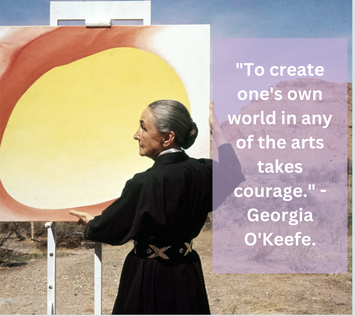|
Once I understood the limitations of this type of instruction, I began to explore other approaches to teaching theatre history. Some were more successful than others, but what I consistently tried to do was to focus on my students’ skill base and how aspects of theatre history related to their own lives. Together we studied how theatre history is important and has affected today’s theatre. Our kids need to know that theatre isn’t just about now, that it has a long and rich history and that it’s important to understand how that history influences the teaching and production of theatre in our modern world. Why theatre history matters If for no other reason, theatre history should be taught because it is one of the National Standards of Theatre Education, the foundation of most K-12 school theatre curricula taught in this country. The Kennedy Center’s ArtsEdge website introductory page to the National Standards states: “Theatre, the imagined and enacted world of human beings, is one of the primary ways children learn about life—about actions and consequences, about customs and beliefs, about others and himself. Better understand who they are as human beings. Studying the motivations and reasons for decisions in the past can help us in our current lives. Improve their performance skills by providing insight into the “why” of theatre and acting—what conventions of the time were, why characters do what they do, and why the playwright needed to include certain elements, among other things. Know your students first Knowing your students’ interests, personalities, and how they learn will help you shape your theatre history instruction style and curriculum. Here’s a breakdown of student learner styles and some suggestions on how to appeal to each type. Performance-based learners Many theatre teachers build their classrooms around acting and performance units. Students who are accustomed to learning about theatre through performance are used to being steeped in texts that allow them to examine character, objectives, physicality, voice, and relationships. In these classrooms, history instruction can bring depth and complexity to performances. Higher-order thinkers We all have students who are left brain critical thinkers. You can appeal to these students by examining how theatre history influenced art creation over time. Pose problems for them to solve, encourage them to compare and contrast, and make connections over the span of theatre history. If you have the time, you can also allow them to create original pieces using historical principles, themes, and ideas. Students were encouraged to bring knowledge from other history classes into this activity. Problem-solvers and collaborators Many teachers use the theatre classroom as a place to hone skills of problem-solving and collaboration. While there are many activities designed for this purpose, these educational objectives can also be achieved by exploring eras of theatre history. For example, teachers can lead students to develop a list of the purposes of drama, and then have them work in teams to explore which times or cultures drove those purposes and which writers, texts, or performances align with them. This activity can be viewed as a kind of treasure hunt and can expand students’ understanding of cultures and societies throughout the history of the world. The problem-solvers in your class may be the ones who take the lead in this exercise, cherishing the detail work required. Teachers can also look at collaboration through the theatre history lens in performance-based works as well. Risk-takers Some of the most important people in theatre history were individuals who broke free from conventions of the day and created something new. But for every Ibsen and Pirandello there are many people who attempted and failed along the way. Theatre history instruction tells the story of the victors, but your students should understand that in order to succeed you must be willing to fall flat. In other words, you want them to understand the value of risktaking in their own theatrical efforts. The innovators of the twenty-first century will not emerge from your class unless you encourage experimentation. Note after reading an article,Exploring The Past Informs the Present Making Theatre History Matter in the Classroom and on the Stage (Moss)
0 Comments
Leave a Reply. |
Myungja Anna KohArtist Categories
All
Archives
July 2024
|
Proudly powered by Weebly


 RSS Feed
RSS Feed